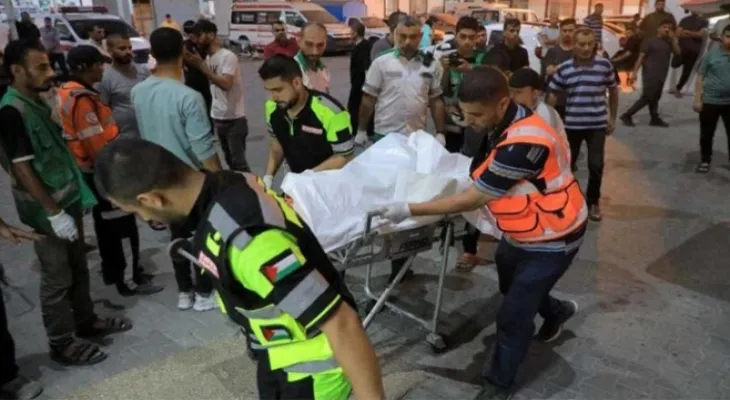Search here
Newspaper
Search here

Arab Canada News
News

Published: December 10, 2023
The World Health Organization said today, Sunday, that it would be nearly impossible to improve the "catastrophic" health situation in Gaza even if an urgent proposal by the organization to bring in more supplies and medical teams is approved.
The urgent proposal submitted by Afghanistan, Qatar, Yemen, and Morocco seeks to open a corridor for health sector workers and medical supplies to enter, obligate the WHO to document violence against healthcare workers and patients, and arrange the necessary funding to rebuild hospitals.
The organization's Director-General, Tedros Adhanom Ghebreyesus, said, "I must be frank with you: these tasks are almost impossible under the current circumstances."
He also added in remarks before the organization's Executive Board, composed of 34 members in Geneva, that the medical needs in Gaza have increased and the risk of diseases has worsened while the health system has shrunk to one-third compared to before the conflict.
Hospitals in Gaza have been bombed, some have been besieged or raided by Israeli occupation forces. Those that remain operational face a surge of casualties and wounded, and sometimes medical procedures are performed without anesthesia.
The WHO database shows that 449 attacks on healthcare facilities in the Palestinian territories have occurred since October 7.
Tedros also said it would be difficult to meet the Executive Board's requests under the security situation on the ground, and added that he deeply regrets that the United Nations Security Council was unable to agree on a ceasefire resolution after the United States used its veto.
He continued, "Restocking health facilities with supplies has become extremely difficult and seriously threatened due to the security situation on the ground and insufficient resupply from outside Gaza."
Palestinian Health Minister Mai Alkaila also denounced the severe shortage of medicines. She told the WHO meeting via video link, "The urgency of the situation does not need exaggeration."
The United States, a member of the WHO Executive Board, indicated at the meeting that it would not oppose the text of the proposal, which was later adopted on Sunday without a vote.
Israel criticized this proposal, saying it disproportionately focuses on Israel and does not address what it describes as Hamas using civilians as human shields by placing command centers and weapons inside hospitals.
Israeli Ambassador Merav Eilon Shahar said during the meeting, "If this session serves any purpose, it will only be to encourage Hamas's actions." Israel is not a member of the WHO Executive Board.
Such emergency sessions of the WHO are rare and have been held during health crises such as the COVID-19 pandemic in 2020 and the Ebola outbreak in West Africa in 2015.
Qatar, which is leading mediation efforts in the Israeli-Palestinian conflict, chaired the session.
Comments